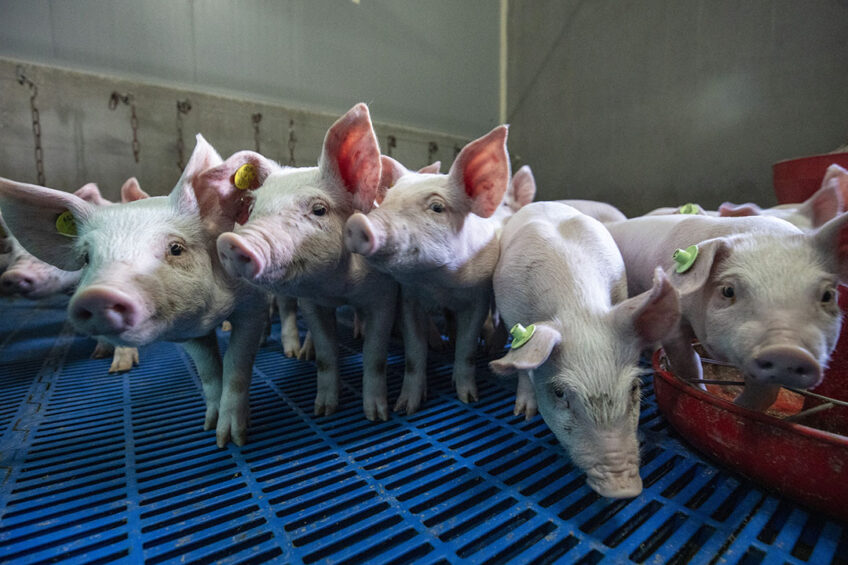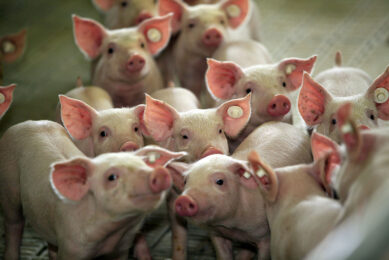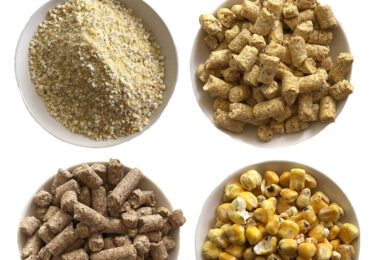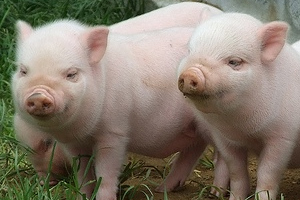A smart combination to ease weaning

Weaning is a critical phase for piglets and losses made in the early stage of life are hard to compensate for later on. Gut health management and feed intake stimulation play a significant role in a successful weaning period. Palatants and bioactive molecules can provide just that.
One of the crucial aspects of pig production is to support young piglets before, during and shortly after weaning. This is because the weaning period is a phase with multiple challenges that have a strong effect on growth and future development.
Gut challenges
During weaning, piglets tend to reduce their feed intake, which can lead to lower growth rates. They also have an immature gut which, together with an undeveloped immune system, makes these young piglets prone to suffer from intestinal disorders. What’s more, external agents such as E. coli represent an additional threat for the animals. E. coli − one of the most common causes of diarrhoea − can rapidly spread throughout the farm via vomit and faeces. Causing loss of appetite, severe dehydration and even mortality, this disease not only compromises animal health but also animal welfare.
A synergistic combination
Since the advent of antibiotic bans, the industry has been continuously searching for alternative solutions that can help animals make it through the difficult weaning phase. Nature-based feed additives are effective solutions that can help pig farmers make the weaning period smoother, boost feed intake levels, reduce intestinal problems and curb associated losses. A synergistic combination of palatants and bioactives in a single solution (called TakTik X-IN 300, hereafter referred to as the ‘additive’) has been specifically designed to meet the needs of young piglets, with proven effectiveness in terms of feed intake, performance and intestinal health and development. This additive contains anethole, a bioactive plant extract, sodium saccharin, a high-intensity non-nutritive sweetener and a mix of various flavouring molecules that give the product a fresh aromatic profile. The effectiveness of the product was recently tested in weaned piglets that were challenged with enterotoxigenic Escherichia coli K88 (a strain that is frequently associated with post-weaning diarrhoea). This trial was performed by Pancosma and South China Agricultural University. In the experiment, 36 piglets (weaned at 24 days of age) were divided into 4 groups with different treatments and diets as summarized in Table 1.
Better piglet performance
After collecting and analysing the experimental data, it was shown that supplementing animals with the additive delivered positive results in terms of piglet performance, immune response and intestinal morphology during the second phase of the experiment (36 – 43 days of age). Feed conversion ratio (FCR) was significantly improved in the additive, antibiotic and control groups, compared to the challenged group. The immune response to infection with Escherichia coli K88 was substantially increased in the additive and antibiotic groups compared to the control and challenged group, peaking at 48 h after the challenge. Tissue samples were taken and analysed immediately after slaughtering animals at 43 days of age. From these samples, it was shown that duodenal villus height and the villus height to crypt depth ratio significantly increased in the additive group compared to the challenged and antibiotic groups (Table 2).
Conclusion
Despite the challenge, animals supplemented with the additive performed similarly to non-challenged and medicated animals, and better than challenged animals with no supplementation. The product tested here can help reduce damage caused by E. coli in weaned piglets by improving immune response and animal robustness. The data from this trial shows that pig producers have alternative solutions to maintain feed intake levels and performance, without the need for antibiotics.










